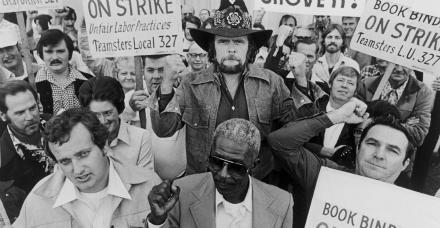
Despite decades of public information campaigns fighting racism, the average income of most non-white ethnicities remains lower than the average income of white people in white countries. Because it is axiomatically true that all groups of people are identical in all psychological attributes, we know that this income disparity can only have come about from white people maliciously denying economic opportunities to those groups. This is proof that white people cannot live equitably with other races.
The time has come for the world to ask itself: do we need to protect the innocent races of the world from the infinite evil of the white man? In other words, should we quarantine white people from the rest of the Earth?
White people gave us Adolf Hitler, so it is clear that they are the human personification of evil. Everywhere they go they bring poverty, chaos and misery. The American and Australian continents were booming with wealth and prosperity before the white man came and reduced them to the impoverished hell-holes they are today. Violence was unknown in Africa before the white man set foot there.
To allow the non-white peoples of the world to live freely among white people, as they currently do in the West, is tempting fate. We all know that it’s only a matter of time until the natural viciousness of the white man stirs him into a genocidal bloodlust and he ends up stuffing billions of people into gas chambers. Getting rid of the white man completely is a futile dream, because his vengeful and aggressive nature means that such efforts can only backfire.
What we need to do to protect the innocent races from the evil of the white man is to declare that the white-majority countries in Europe, North America, Australia and New Zealand must remain so for the sake of not provoking a genocidal chimpout. In short, non-white people should not be allowed to live in white countries – for their own sake.
The world needs to accept that white people are too dangerous to expose other people to them, and this is especially true for Muslims and Africans. Immigration of these two groups must be immediately curtailed.
Every time a Muslim slaughters a bunch of people in the West, white people are frothing at the mouth to condemn the Muslim, and seldom make reference to the fact that terror attacks are merely karmic payback for the white man’s historical reign of terror.
Likewise, the fact that black Americans rape white women at a vastly higher rate than white Americans rape black women is evidence that the inherent racism of the white man is so strong, so all-pervading, that not even when he loses his mind in a sexual frenzy does he consider black women worth copulating with. The white man is only capable of viewing the black woman with disgust, in contrast to the warm will to engage that black men express towards white women.
In summary, it should be declared that Europe, North America and Australasia are effectively already lost to the rapacious lust of the white man, and that the risk of physical harm to other races is so great that they must not be allowed to set foot in these areas. Another Holocaust is inevitable, so the current Western intake of refugees and third-world immigrants could be likened to lambs going to the slaughter – are we not obligated to intervene?
The white man is to humans what polar bears are to bears: a ruthless, mindless killer. All of the other races of this Earth only want peace and goodwill. For the sake of the physical safety of those other races, they must be prevented from wandering into countries populated by white people.
*
If you enjoyed reading this essay, you can get a compilation of the Best VJMP Essays and Articles of 2017 from Amazon for Kindle or Amazon for CreateSpace (for international readers), or TradeMe (for Kiwis).



